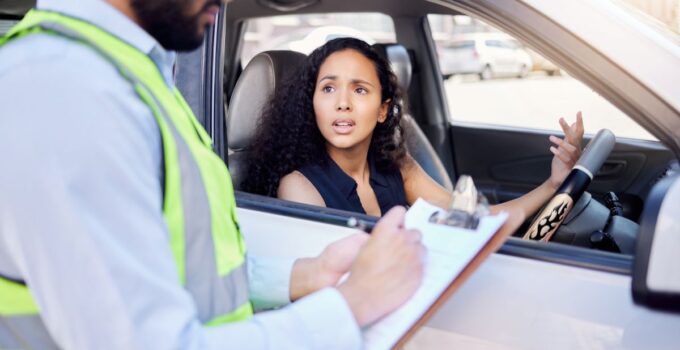Getting pulled over by the police is stressful, and in some cases, it can go very wrong. Knowing your rights and how to handle a traffic stop could make all the difference in staying safe and legally protected. So, what can you do to protect yourself during a traffic stop?
1. Stay Calm and Composed
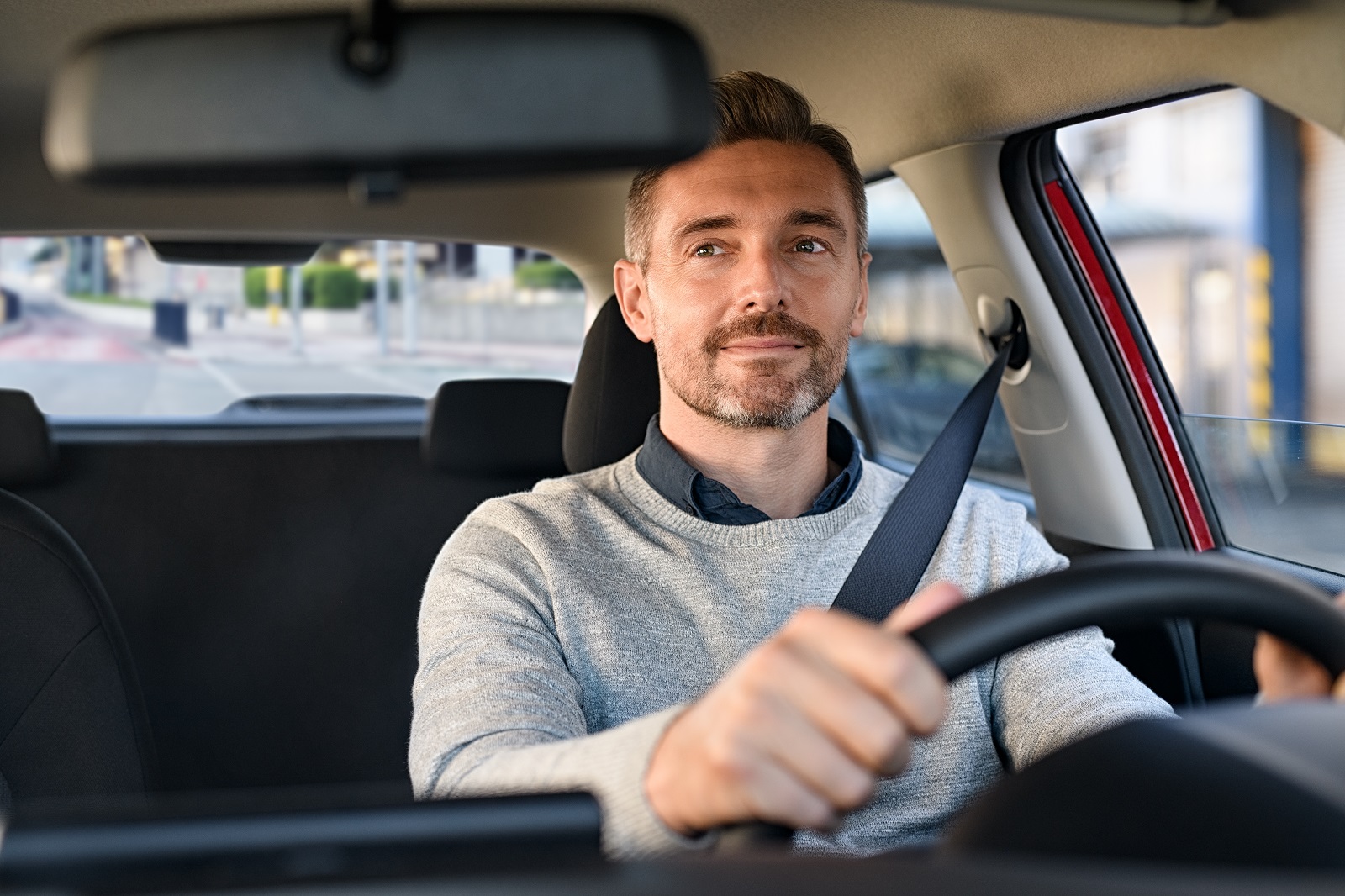
Image Credit: Shutterstock / Rido
When you see those flashing lights behind you, stay calm and pull over safely. According to the Bureau of Justice Statistics, over 50,000 drivers experience traffic stops every day. Remaining composed is key to avoiding unnecessary escalation.
2. Keep Your Hands Visible
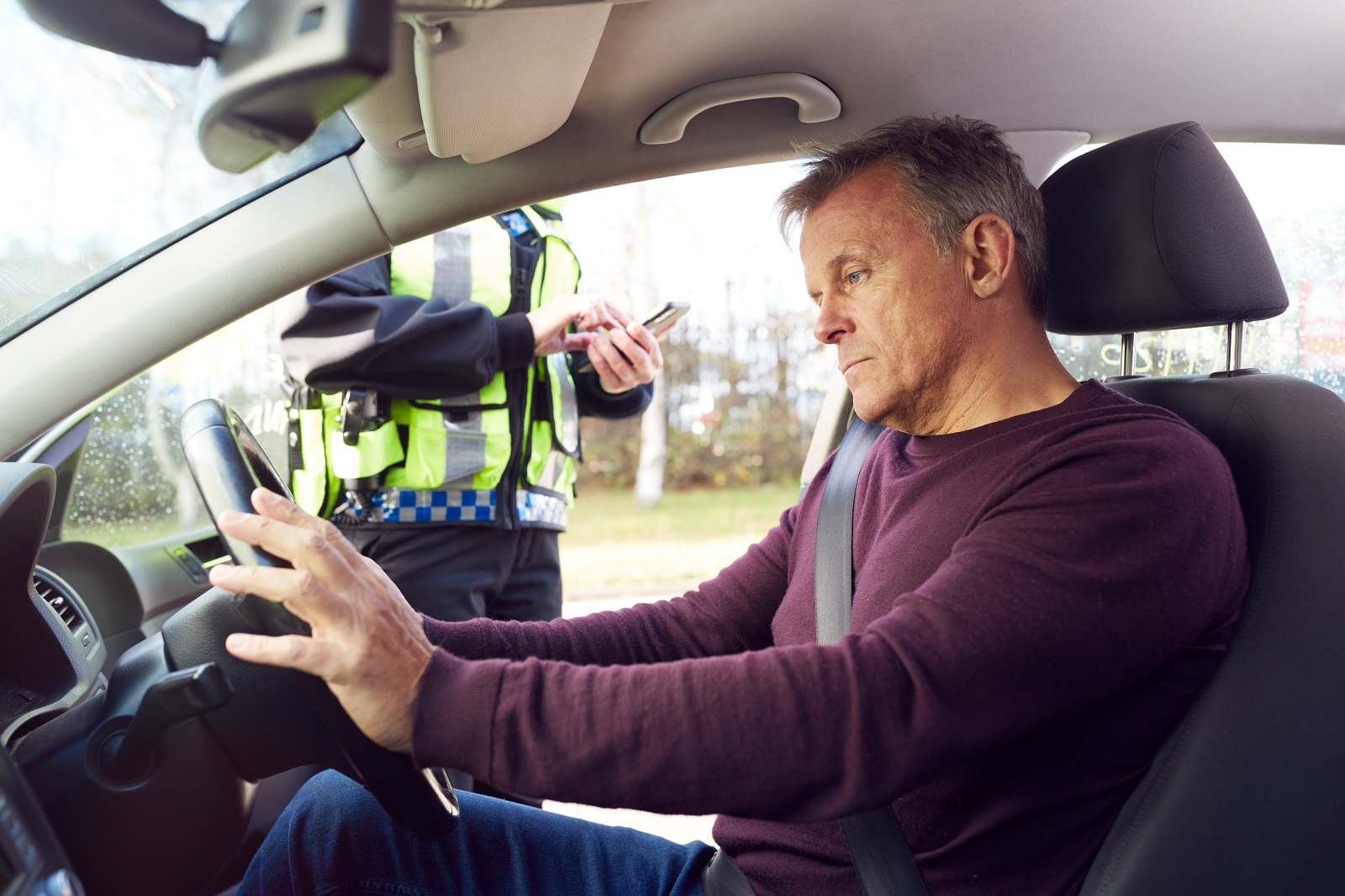
Image Credit: Shutterstock / Monkey Business Images/
One of the first things an officer looks for is your hands. Keeping them on the steering wheel where the officer can see them helps defuse tension. A 2021 study by the National Policing Institute showed that visible hands significantly reduce the chances of an officer perceiving a threat.
3. Know Your Rights to Stay Silent
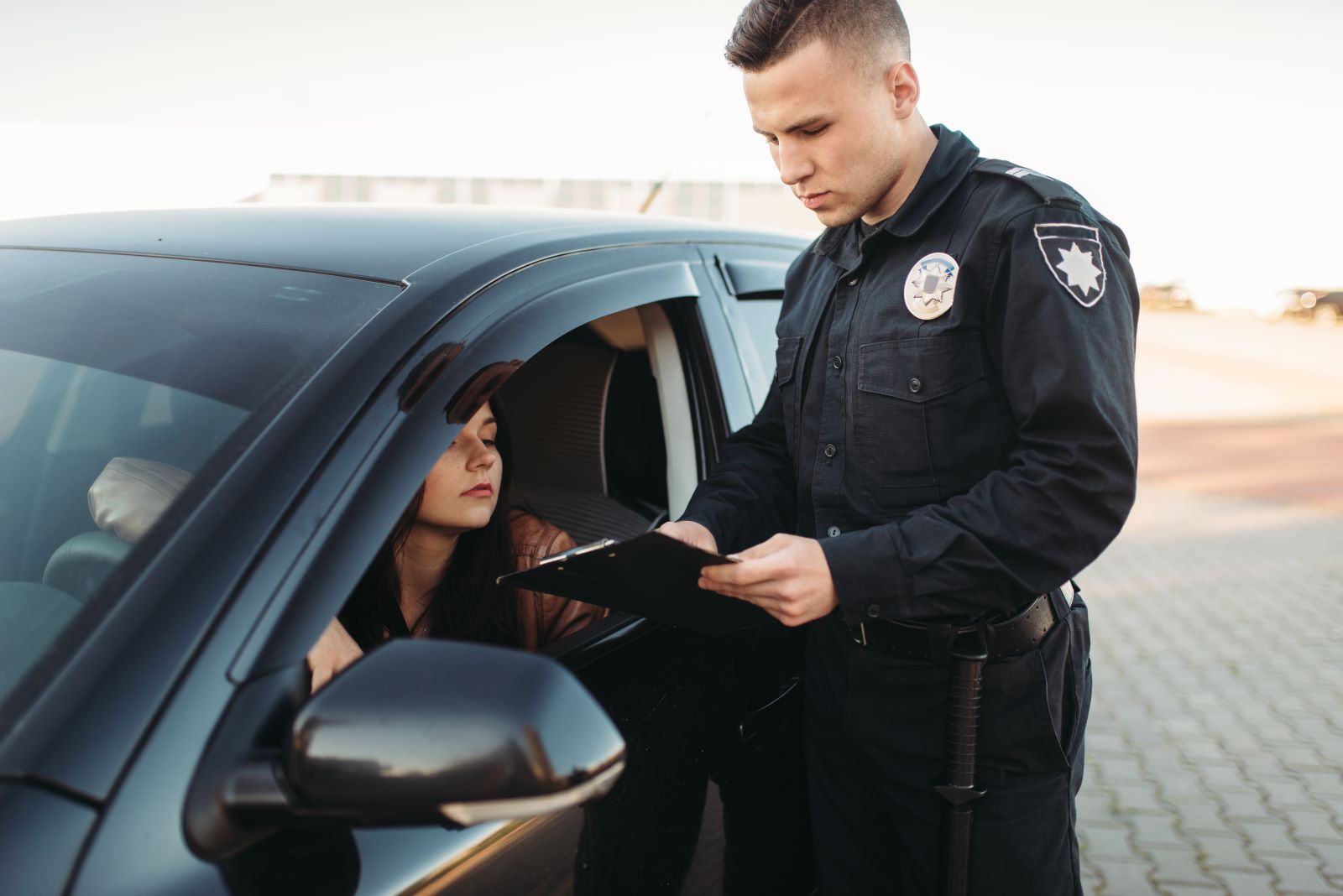
Image Credit: Shutterstock / Nomad
You have the right to remain silent during a traffic stop. While you must provide your license, registration, and proof of insurance, you are not required to answer additional questions. The ACLU emphasizes that you can politely say, “I’m not answering any questions,” to protect yourself legally.
4. Record the Encounter (If Legal in Your State)
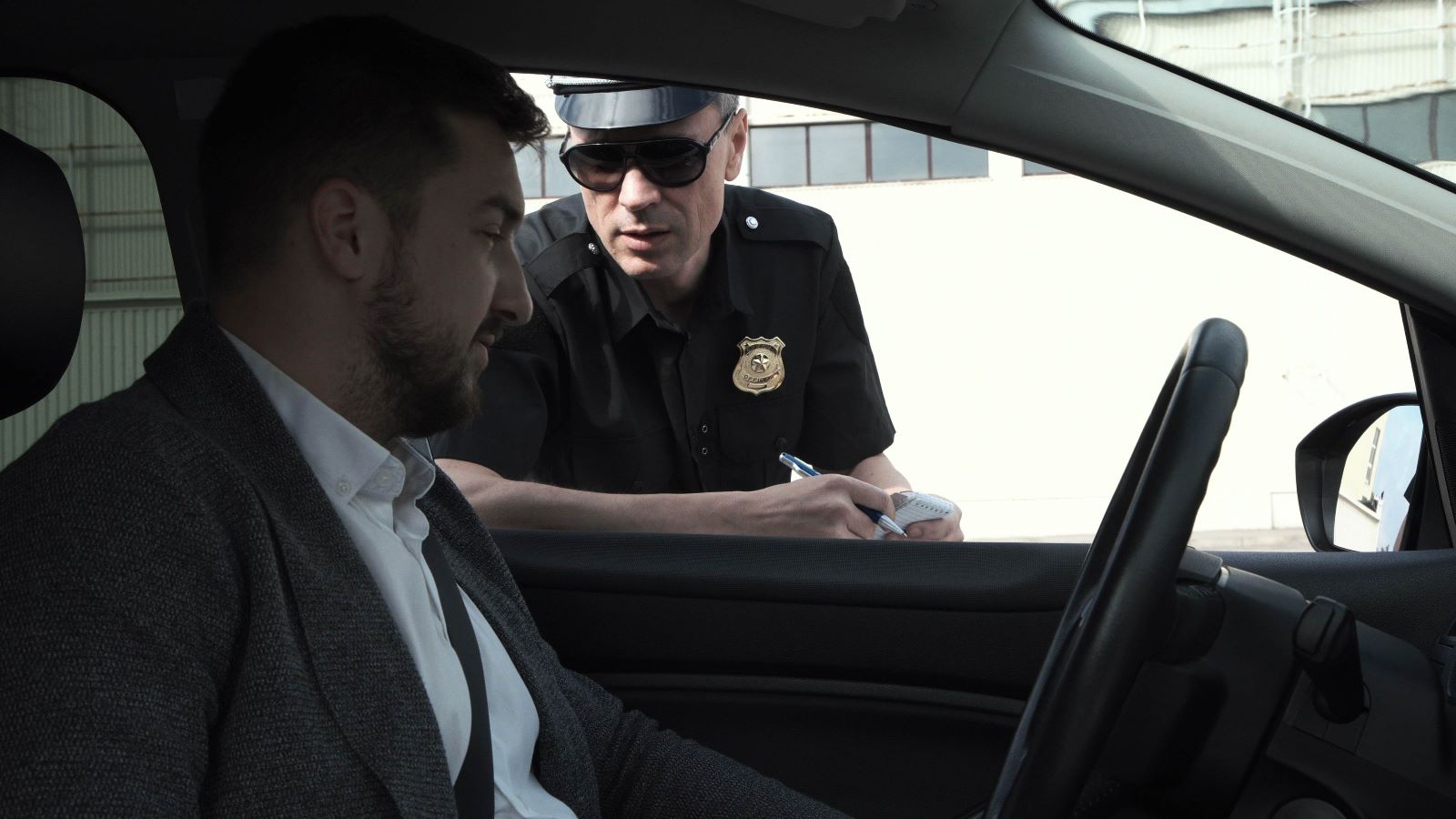
Image Credit: Shutterstock / Frame Stock Footage
Recording the traffic stop can protect you if things go wrong. In 38 states, it is legal to record police officers as long as you do not interfere with their work. Data from the American Bar Association suggests that recorded encounters can provide crucial evidence in legal cases.
5. Don’t Consent to Searches
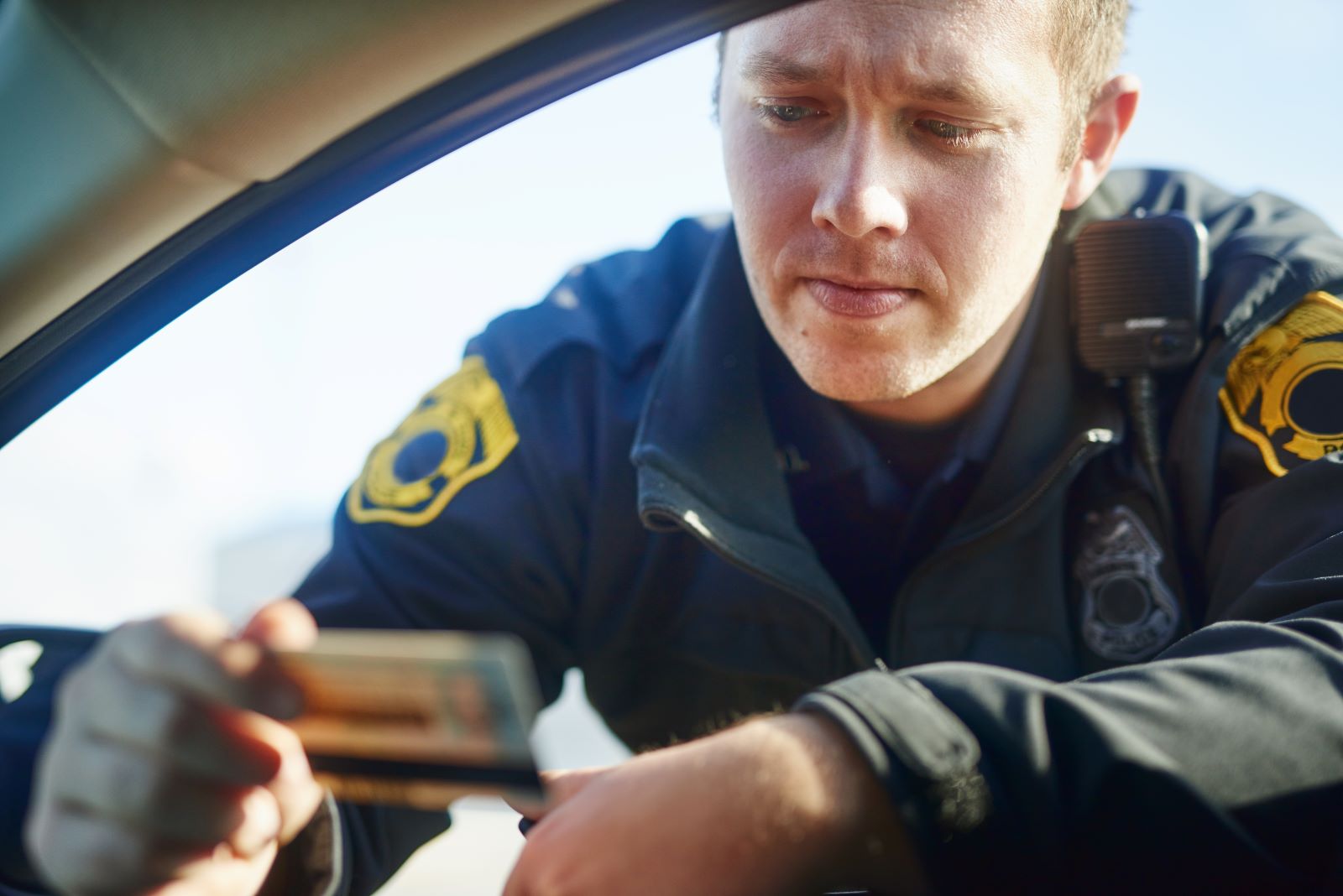
Image Credit: Shutterstock / PeopleImages.com – Yuri A
Unless the police have a warrant, you do not have to consent to a search of your vehicle. The Fourth Amendment protects you from unreasonable searches and seizures, and consenting to a search can waive your rights. According to the National Institute of Justice, over 90% of drivers who refuse searches are not subjected to further legal action.
6. Ask If You Are Free to Leave
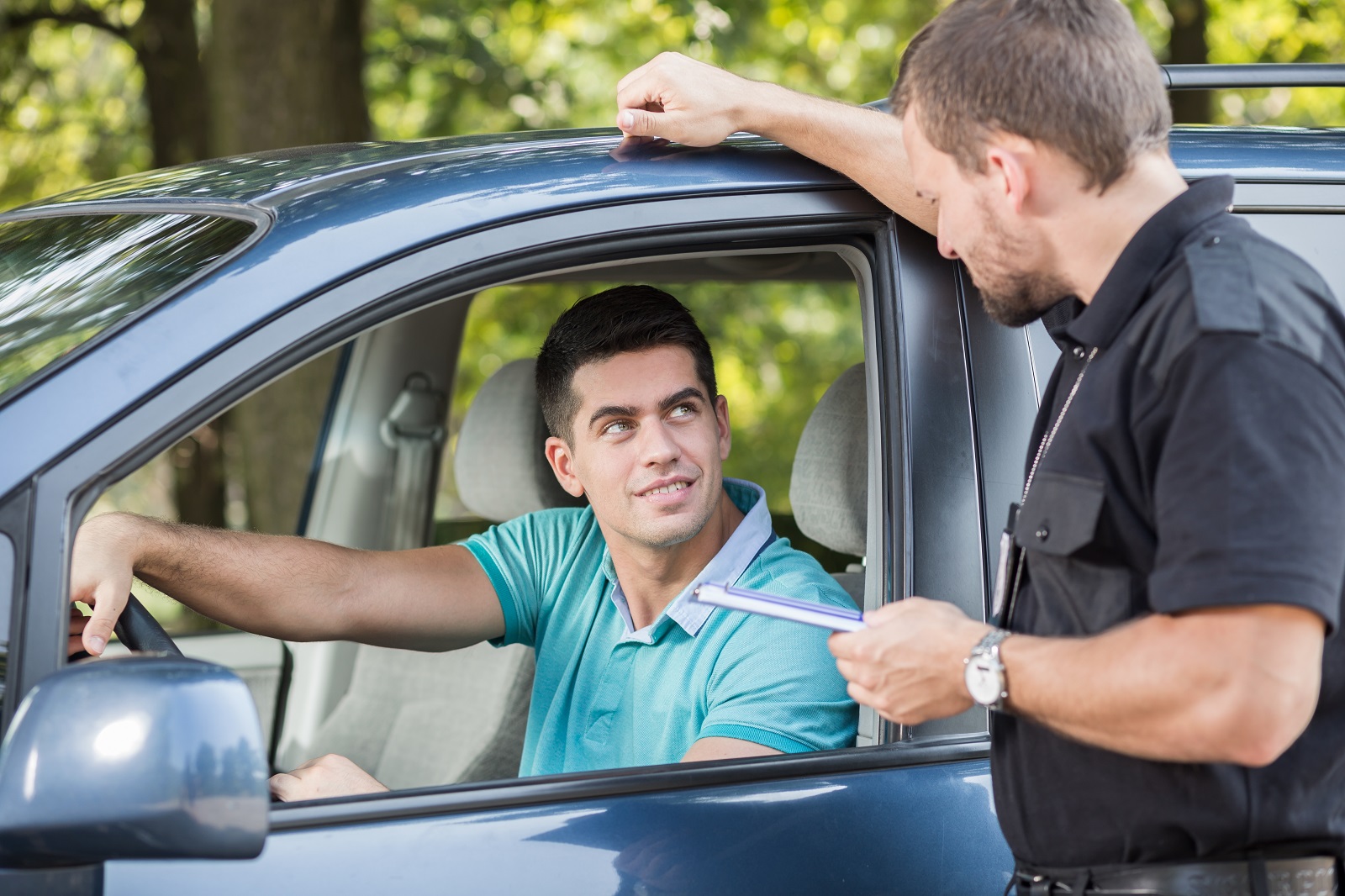
Image Credit: Shutterstock / Ground Picture
If the officer doesn’t make an arrest or issue a citation, you should ask if you are free to go. A 2019 study from the University of Chicago Law Review found that many people do not realize they can ask this question and end up detained longer than necessary. Being polite but firm can prevent unnecessary detainment.
7. Remain Polite, But Don’t Admit Fault
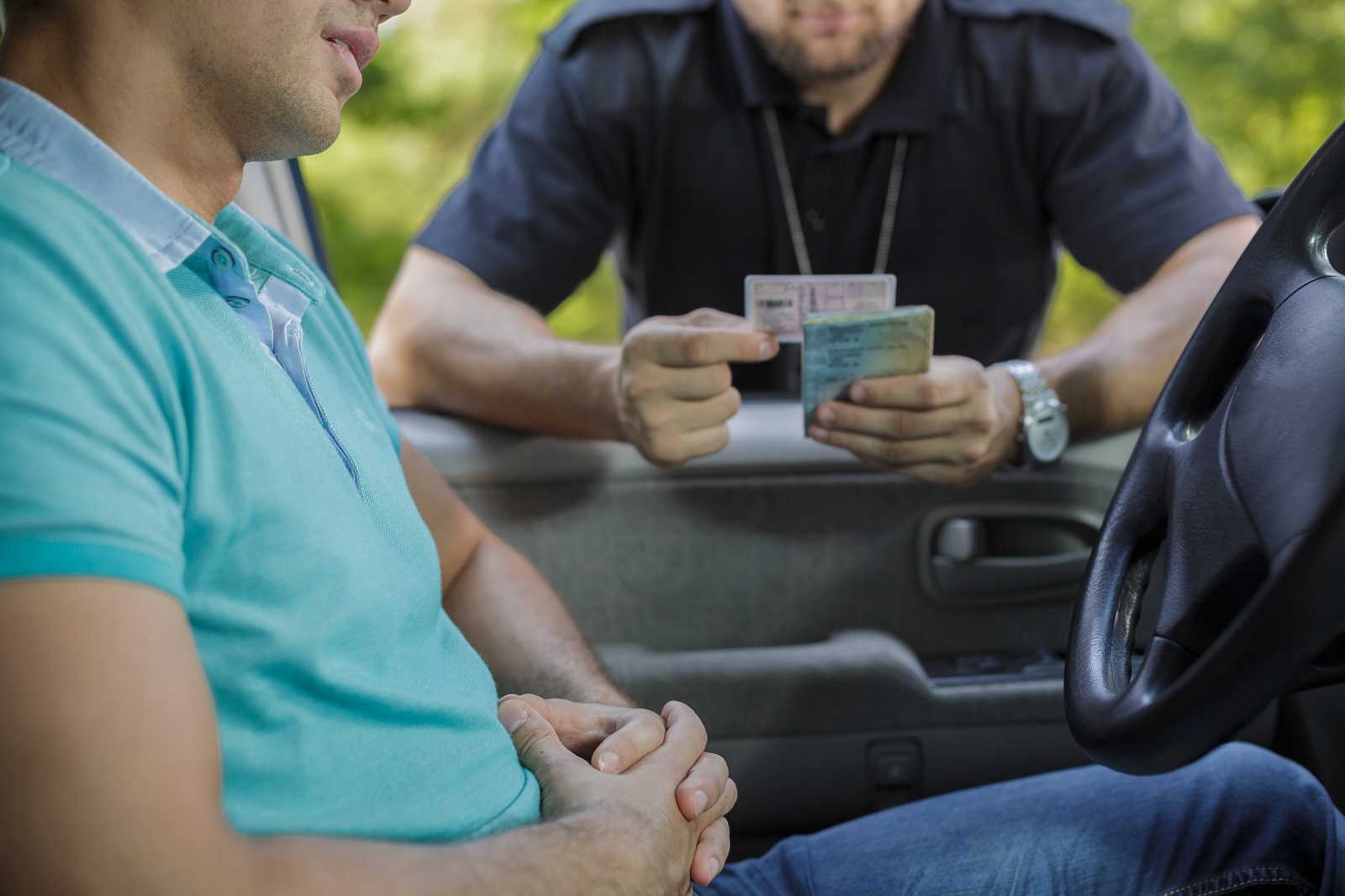
Image Credit: Shutterstock / Ground Picture
Even if you think you’re in the wrong, do not admit fault during the stop. Anything you say can be used against you later in court. The Insurance Information Institute warns that admissions during traffic stops often lead to increased liability and higher insurance premiums.
8. Avoid Making Sudden Movements
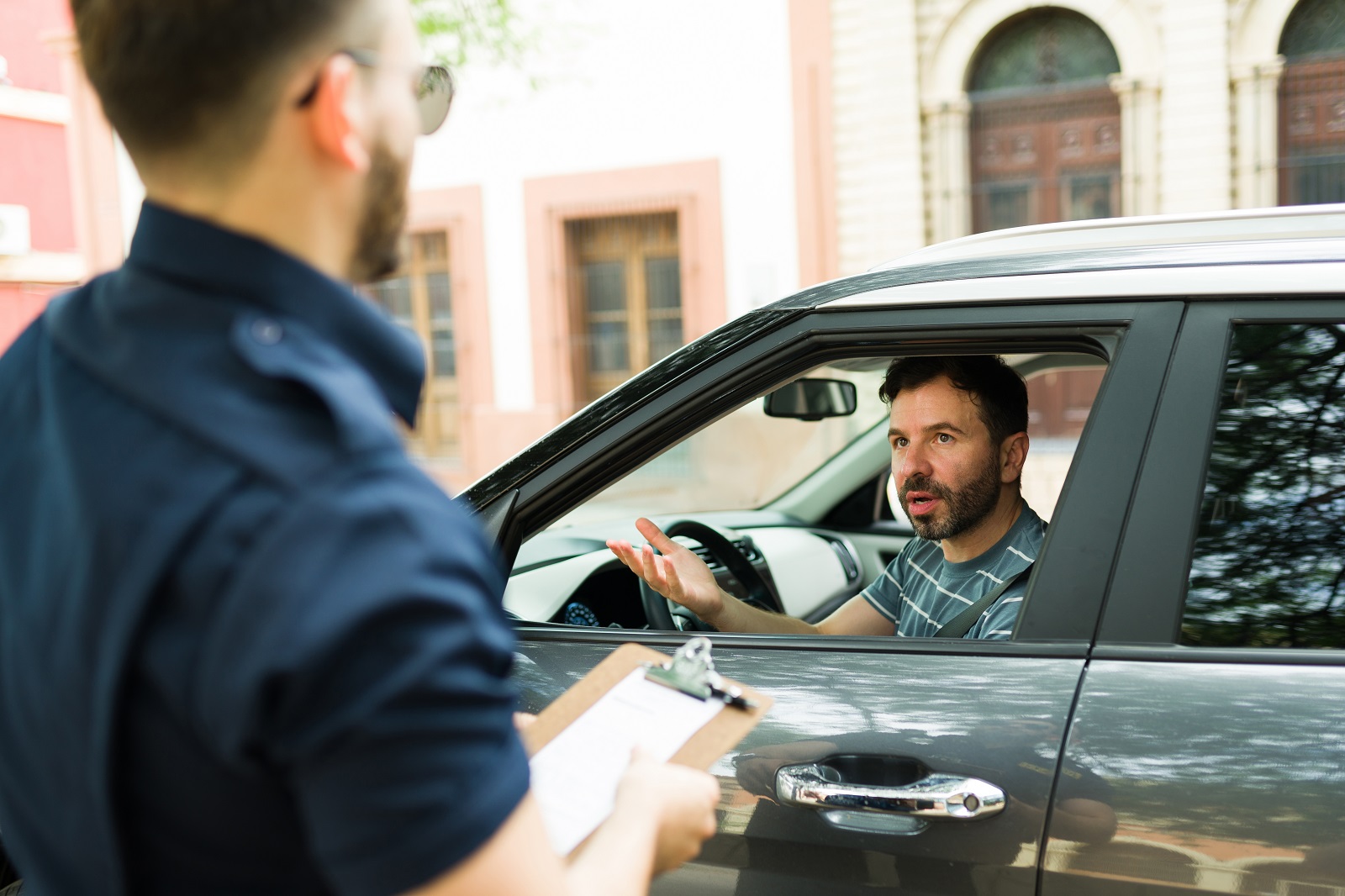
Image Credit: Shutterstock / antoniodiaz
Sudden movements can be interpreted as a threat by the officer. The National Law Enforcement Memorial Fund reports that 26% of officer-related injuries during traffic stops are linked to perceived threats from driver movements. Always inform the officer before reaching for your documents.
9. Understand the Risks of Refusing a Breathalyzer
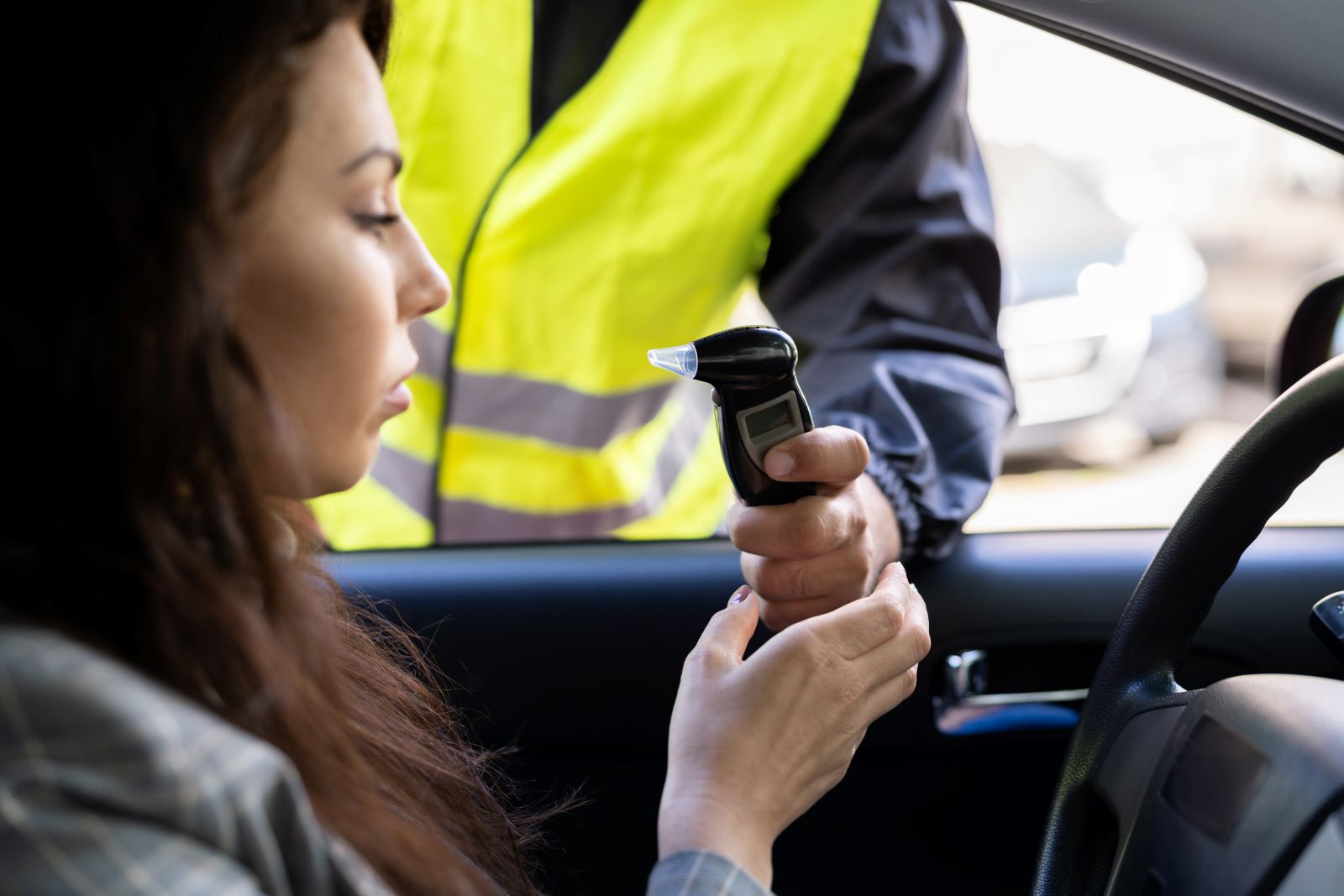
Image Credit: Shutterstock / Andrey_Popov
If you are pulled over on suspicion of drunk driving, refusing a breathalyzer test can have consequences. Many states have “implied consent” laws, meaning refusal can lead to automatic license suspension. A 2020 report by the Governors Highway Safety Association shows that over 20% of DUI suspects refuse breathalyzer tests, often resulting in harsher penalties.
10. Request a Lawyer If Arrested
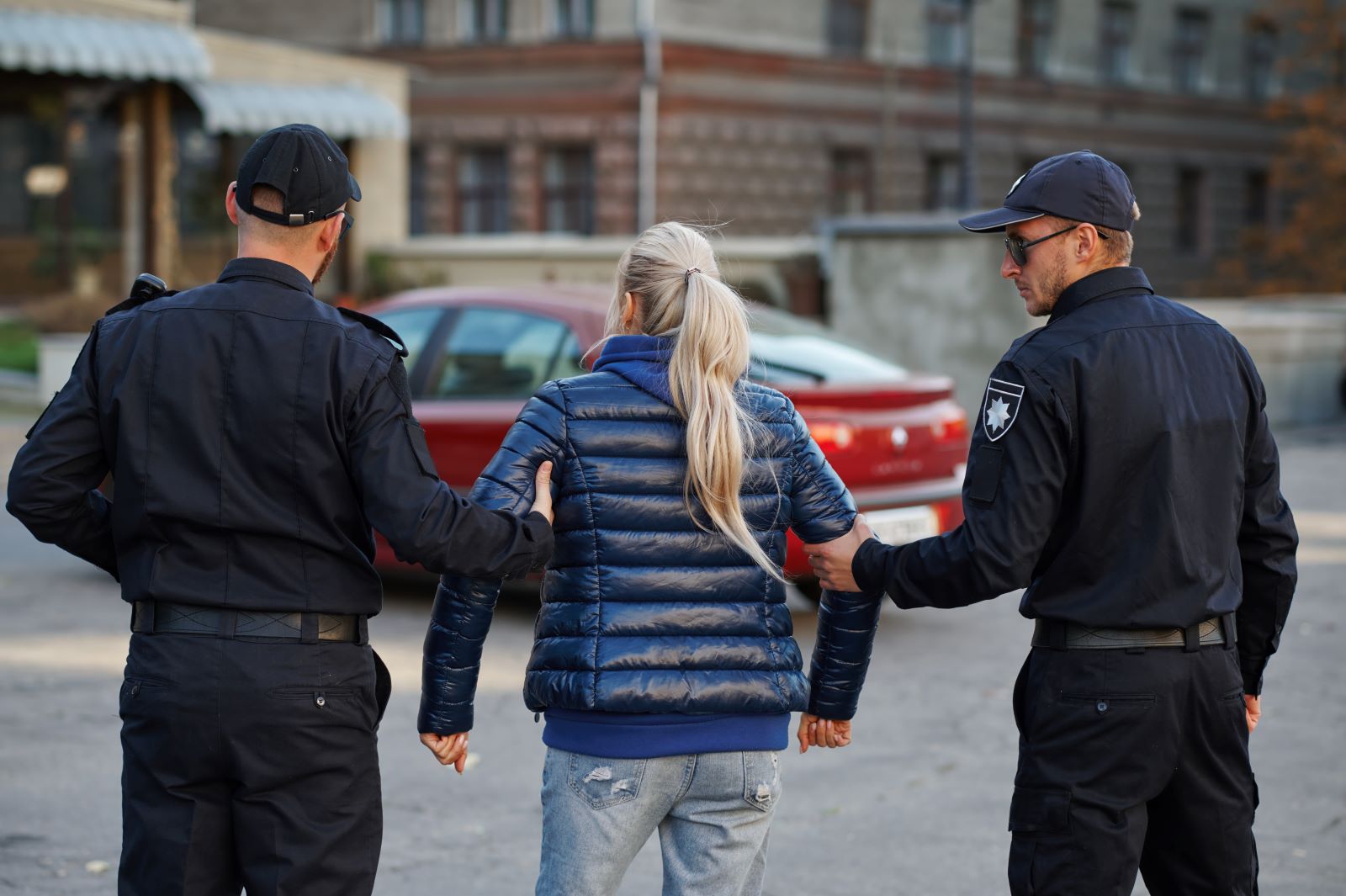
Image Credit: Shutterstock / Nomad_Soul
If the situation escalates and you are arrested, immediately request a lawyer. Under the Sixth Amendment, you have the right to legal representation, and anything you say without a lawyer present could be used against you. The National Association of Criminal Defense Lawyers advises that asking for a lawyer should stop any questioning.
11. Don’t Try To Argue on the Spot
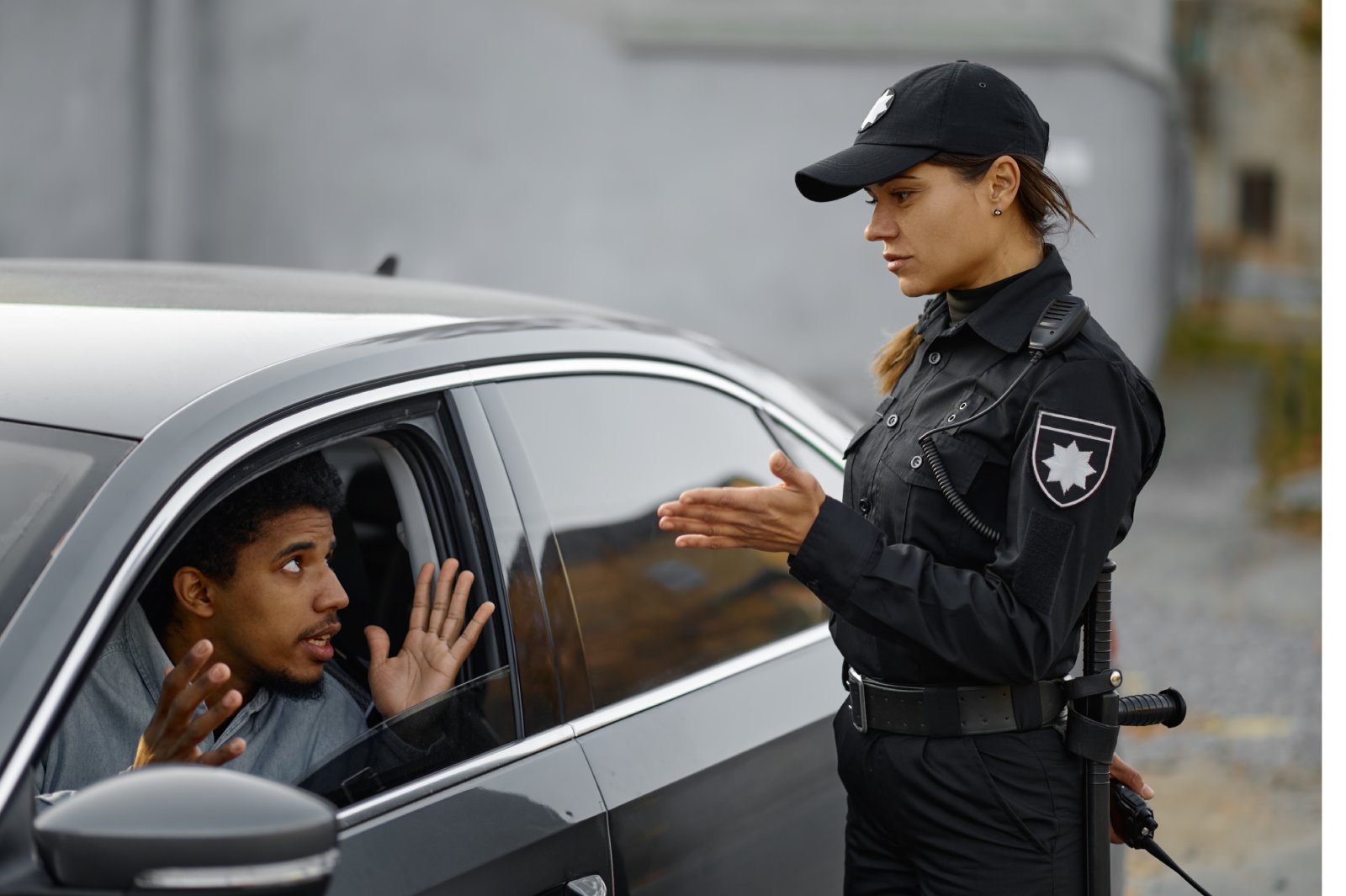
Image Credit: Shutterstock / Nomad_Soul
A traffic stop is not the place to argue or contest a ticket. Save your arguments for court if you believe the stop was unjustified. According to a 2018 study from the Stanford Open Policing Project, disputes during stops lead to negative outcomes in over 40% of cases.
12. Avoid Confrontation
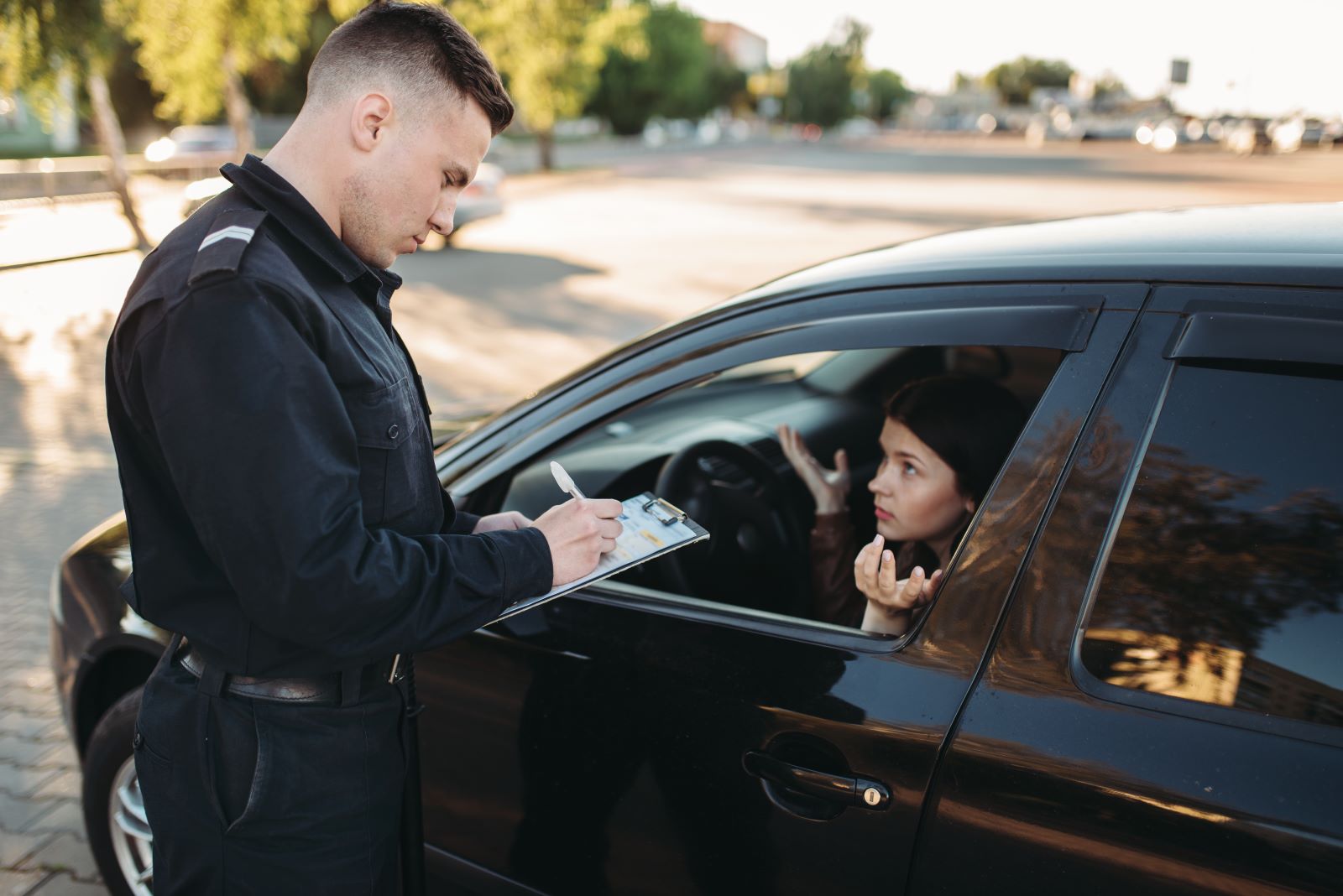
Image Credit: Shutterstock / Nomad_Soul
Never escalate the situation by confronting the officer. The National Police Foundation found that confrontational behavior by drivers increased the likelihood of arrest or use of force in nearly 30% of traffic stops. It’s always safer to remain calm and cooperative.
13. Be Aware of Local and State Laws

Image Credit: Shutterstock / PanuShot
Traffic stop procedures and your rights vary by state, so it’s crucial to understand local laws. The National Conference of State Legislatures provides resources on state-specific laws regarding stops, searches, and recording police officers. Knowing your state’s rules could prevent misunderstandings during a stop.
14. Know What Happens If You Refuse a Ticket
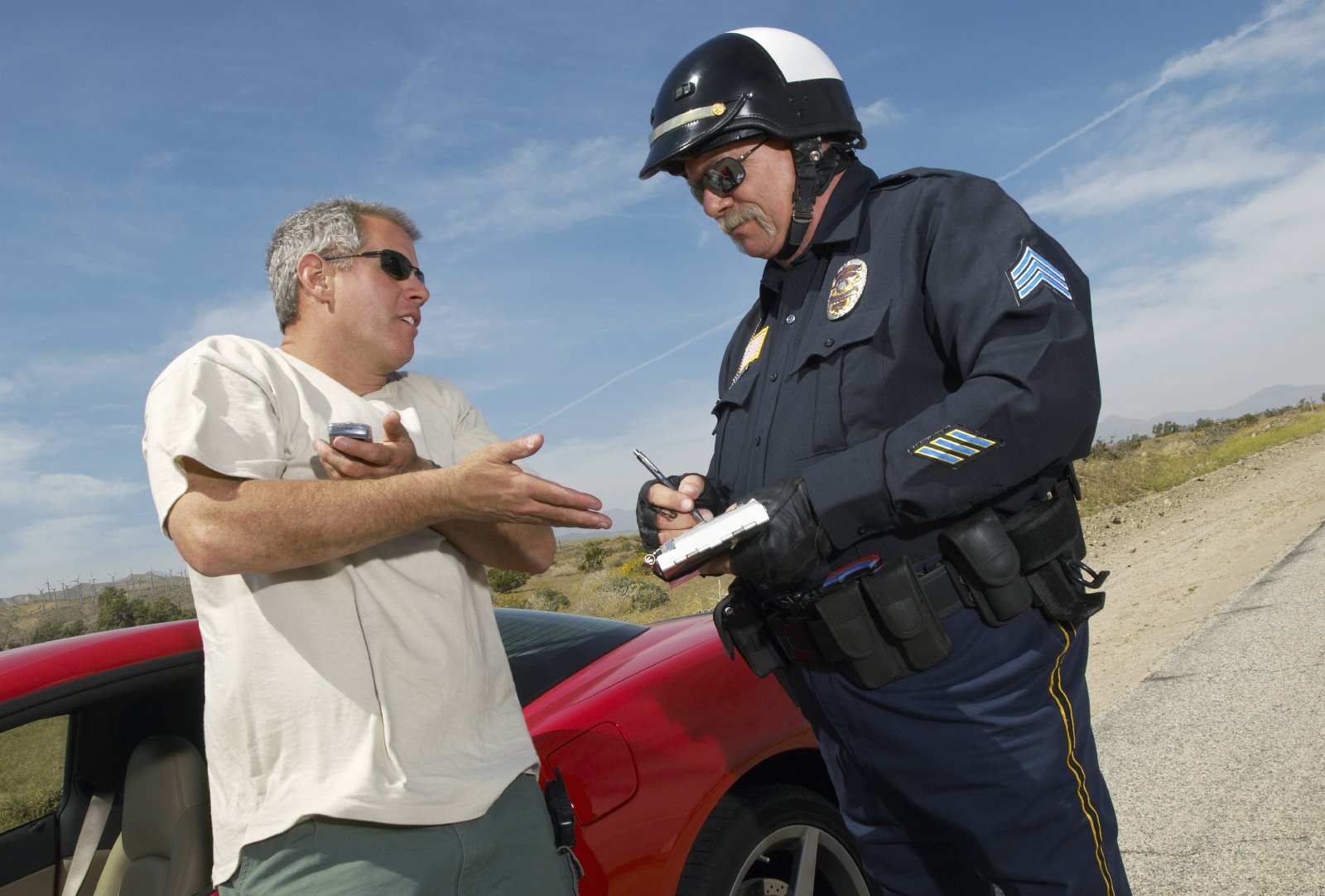
Image Credit: Shutterstock / sirtravelalot
In most states, refusing to sign a traffic ticket is a bad idea. Signing a ticket isn’t an admission of guilt; it’s just an acknowledgment of receiving the citation. The U.S. Department of Transportation warns that refusing to sign can lead to an arrest in certain jurisdictions.
15. Make a Mental Note of Details
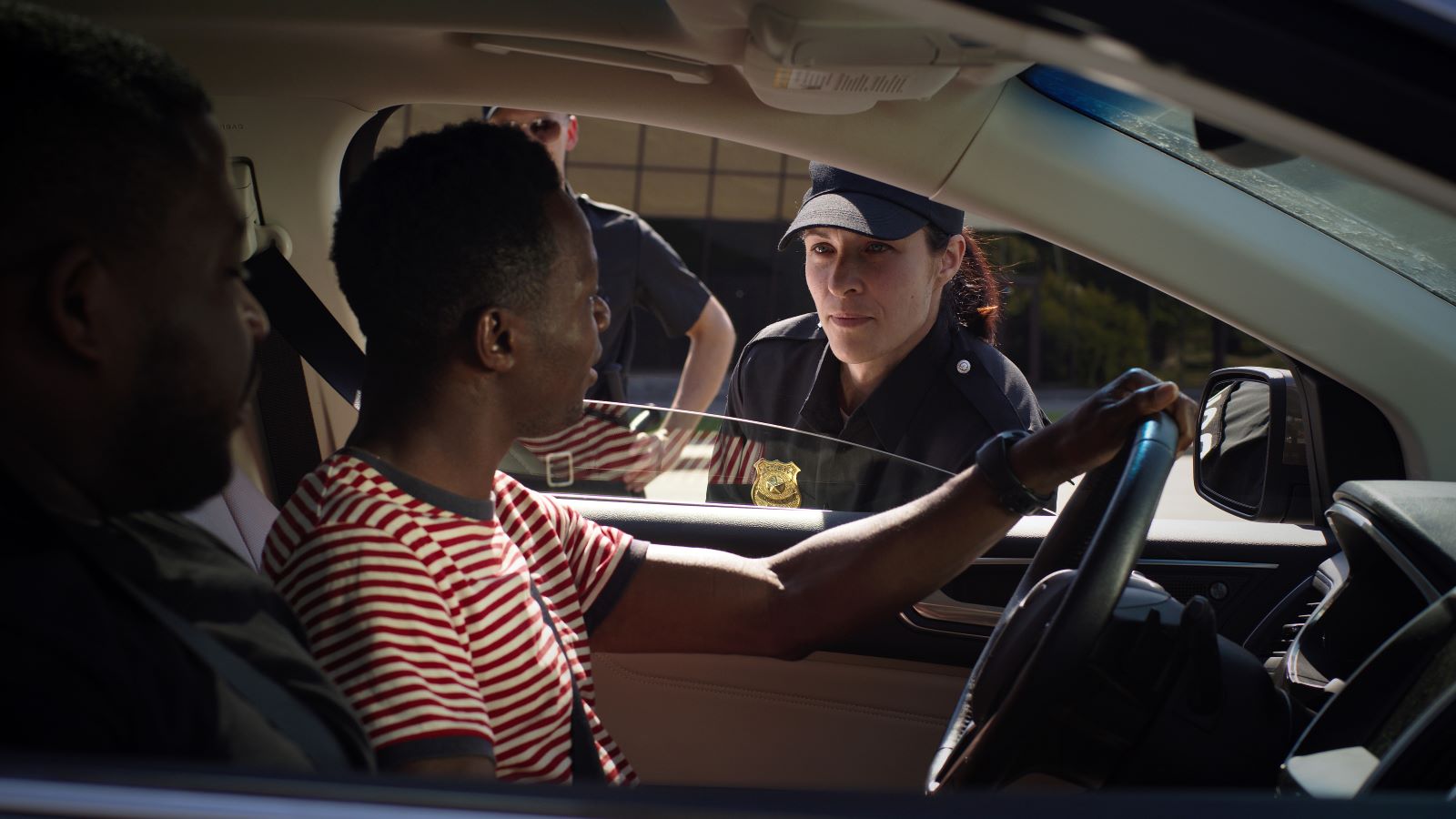
Image Credit: Shutterstock / Frame Stock Footage
If you feel the stop was unfair or aggressive, make a mental note of key details like the officer’s badge number, the time, and the location. This information can be crucial later if you file a complaint or need to fight a ticket in court. The American Civil Liberties Union advises that detailed records often strengthen legal cases against misconduct.
16. Stay Inside the Car Unless Asked to Exit
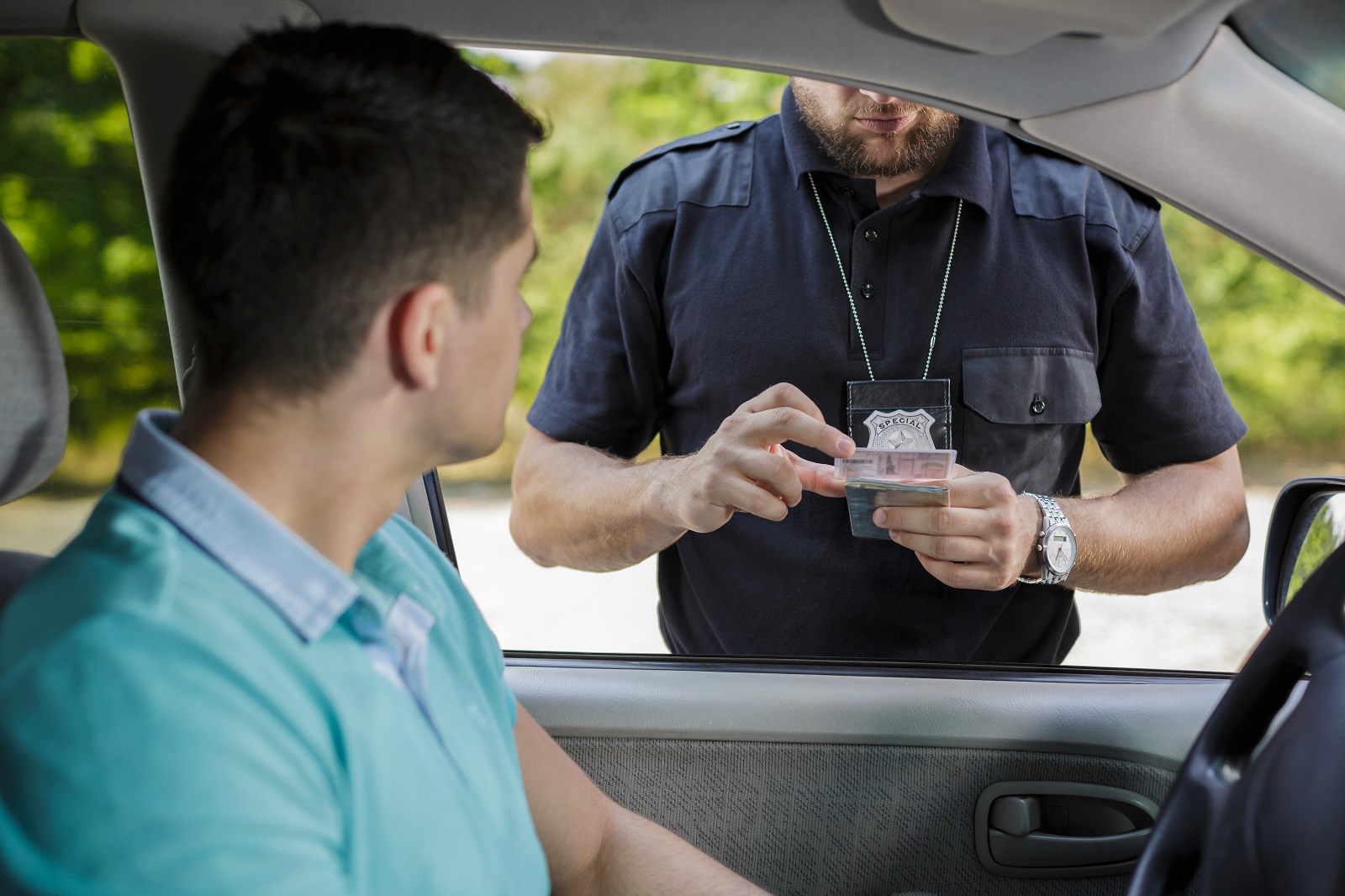
Image Credit: Shutterstock / Ground Picture
Unless the officer instructs you to exit, stay inside your vehicle. According to the National Highway Traffic Safety Administration, stepping out prematurely can be seen as a sign of aggression or an attempt to flee. Keep your seatbelt on and wait for clear instructions.
17. Know What To Do If the Situation Escalates
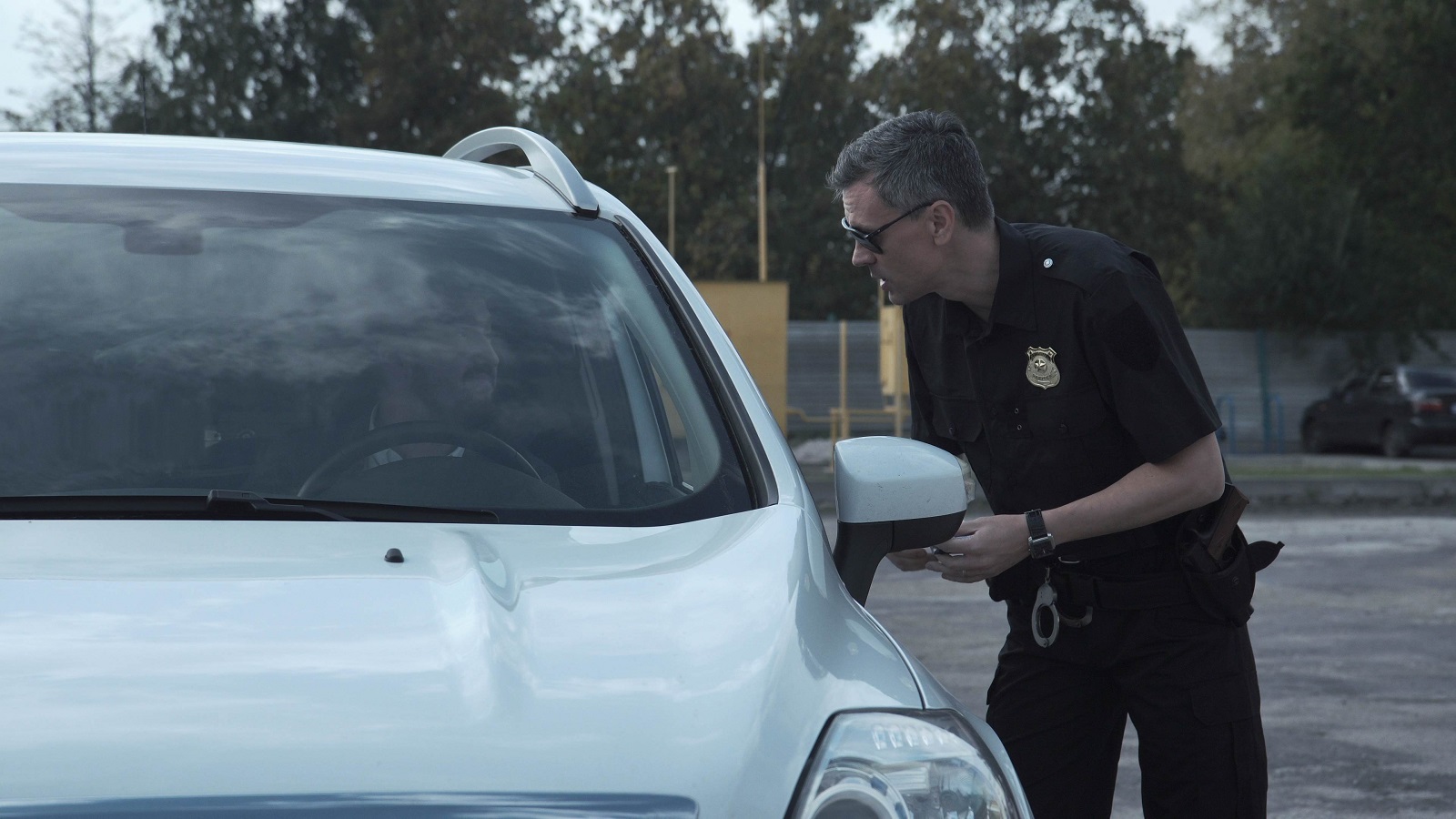
Image Credit: Shutterstock / Frame Stock Footage
If a traffic stop starts to escalate, remain calm and compliant. The American Psychological Association emphasizes that keeping your cool in stressful situations can help de-escalate the encounter. If you believe your rights are being violated, remember that there will be a chance to address it later with legal help.
18. File a Complaint If Necessary

Image Credit: Shutterstock / TheCorgi
If you believe you were treated unfairly or unlawfully during a traffic stop, don’t hesitate to file a formal complaint. Many police departments have internal affairs divisions dedicated to reviewing such complaints. The National Police Accountability Project encourages people to document their experiences and report misconduct to help improve policing practices.
Road Wisdom: Keep Calm and Carry On
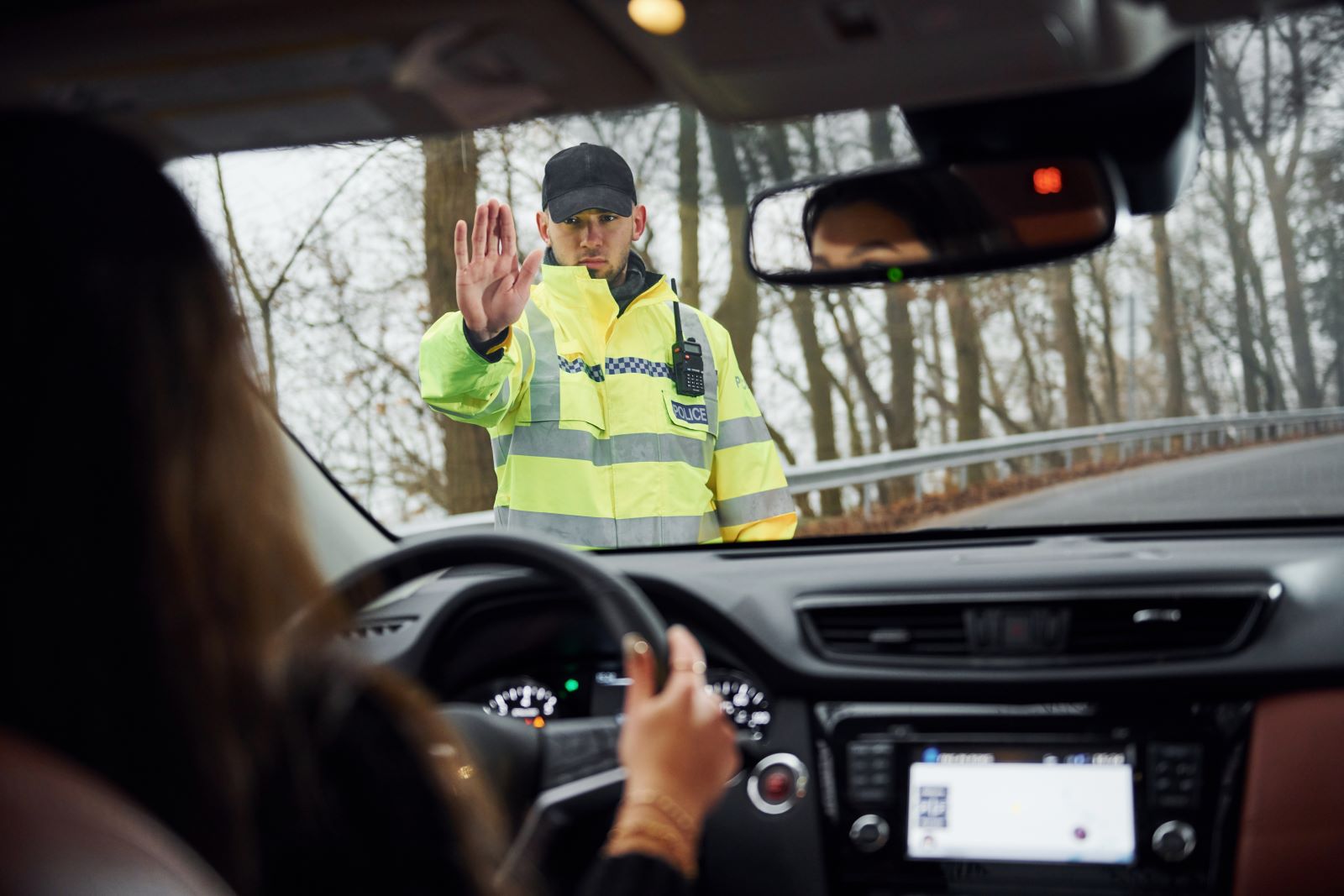
Image Credit: Shutterstock / Standret
Dealing with traffic stops can be nerve-wracking, but staying calm and knowing your rights can help you navigate them safely. In every case, it’s better to handle things legally than to let a bad situation spiral out of control.
Police Magnet: 7 Cars That Guarantee You’ll Get Pulled Over
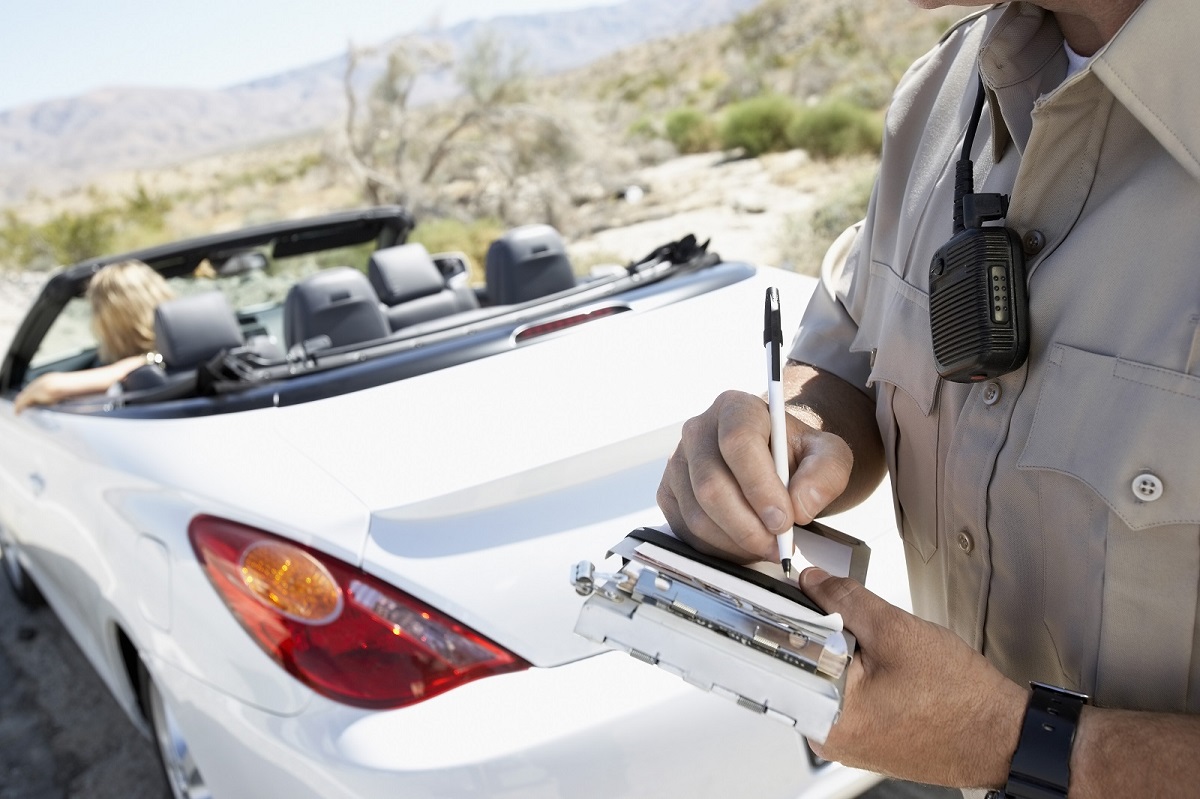
Image Credit: Shutterstock / sirtravelalot
Driving certain cars can make you more noticeable to law enforcement, even if you’re abiding by all the rules. Are you driving one of these “police magnets”? Here are seven cars that seem to attract more police attention than others. Police Magnet: 7 Cars That Guarantee You’ll Get Pulled Over
The Classic Cars That Were Total Clunkers
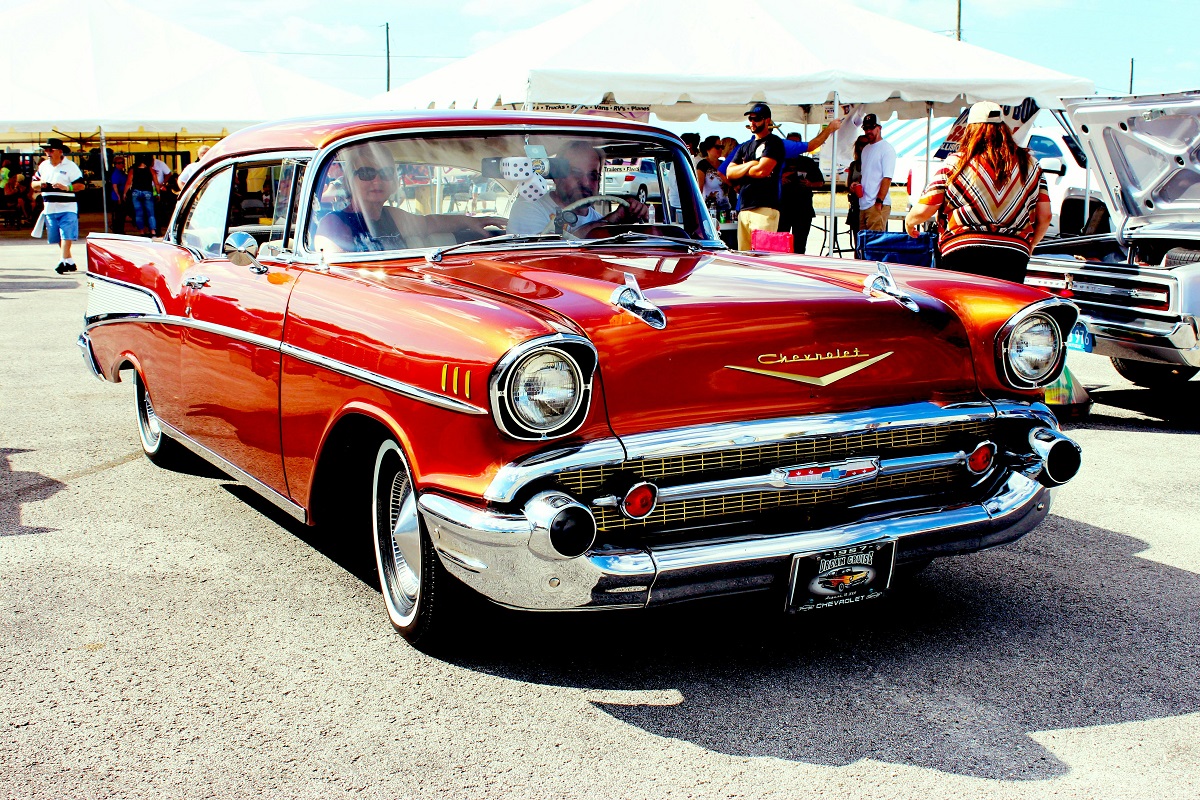
Image Credit: Pexels / Pixabay
Nostalgia has a funny way of making the past seem better than it was, especially when it comes to cars. But here’s the hard truth: some of those “classic” cars your dad raves about were real clunkers. Here’s a closer look at why some of those so-called “classics” weren’t all they were cracked up to be. The Classic Cars That Were Total Clunkers
The Worst U.S. Cars Ever Made: A Retro List
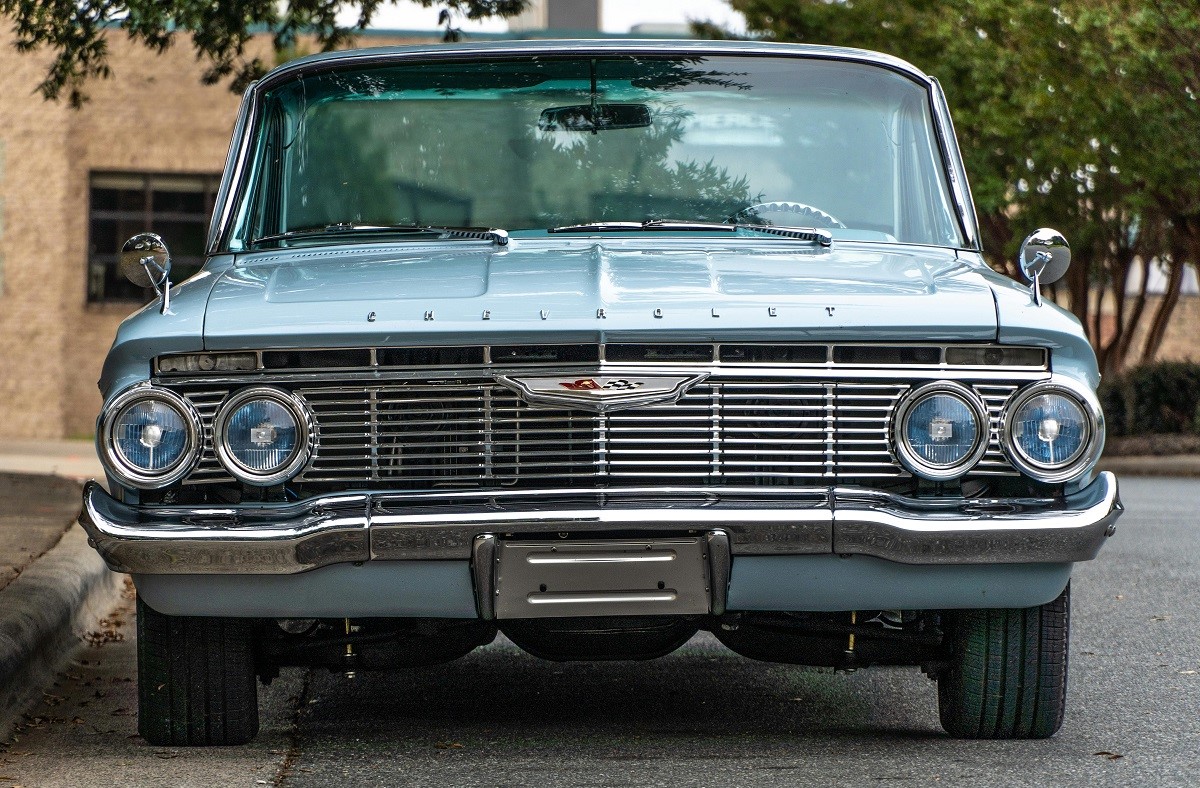
Image Credit: Pexels / Be The Observer
The U.S. auto industry has produced some incredible vehicles, but not every model was a hit. Here’s a look back at 16 of the worst cars ever made in the U.S., each infamous for its own unique flaws. The Worst U.S. Cars Ever Made: A Retro List
Featured Image Credit: Shutterstock / PeopleImages.com – Yuri A.
The content of this article is for informational purposes only and does not constitute or replace professional advice.
The images used are for illustrative purposes only and may not represent the actual people or places mentioned in the article.
For transparency, this content was partly developed with AI assistance and carefully curated by an experienced editor to be informative and ensure accuracy.
